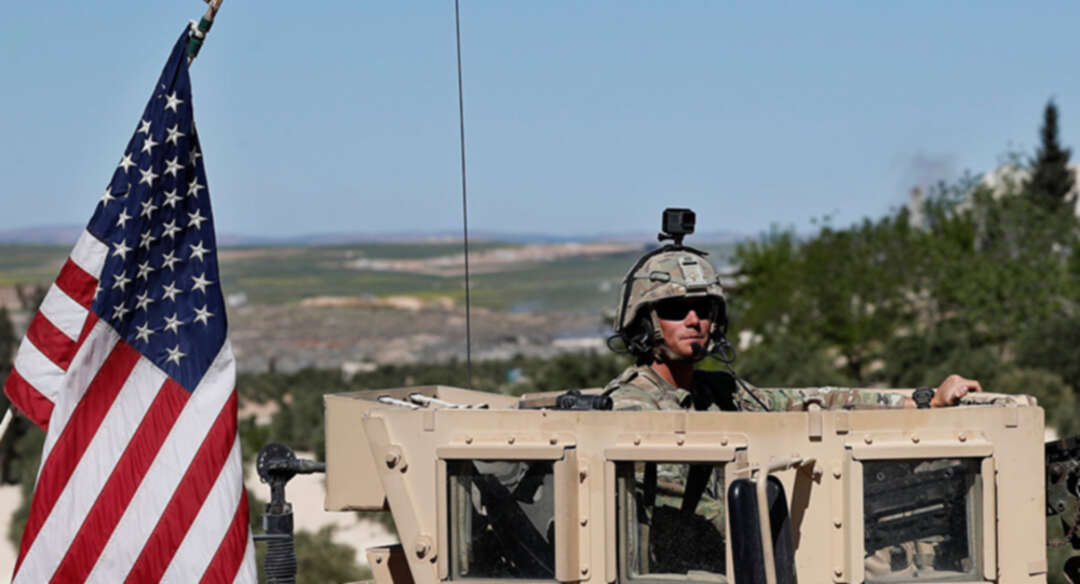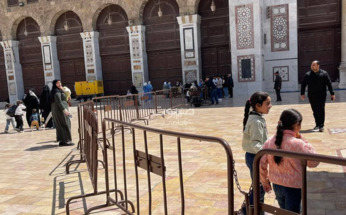-
With a direct warning to the regime's head.. Israel targets Assad's brother's headquarters near Damascus
-
It appears that Israel aims through this strike to send a final warning to Bashar al-Assad, cautioning him against involvement in the current conflict under the threat of losing his power and targetin

An Israeli drone carried out an attack with highly explosive missiles on Sunday evening, targeting a villa belonging to the Fourth Division, near the town of Yaafour in rural Damascus.
The significance of this target lies in its close association with Major General Maher al-Assad, brother of Syrian regime president Bashar al-Assad, giving the attack serious political and security dimensions.
Maher al-Assad holds the position of commander of the Fourth Division and is considered one of the most prominent figures associated with the Iranian wing in Syria and close to the Lebanese Hezbollah. This targeting is widely viewed as an explicit warning message from Israel to the Syrian regime and Bashar al-Assad personally.
Syrian activists reported that warning messages reached Maher al-Assad, stating that he would be a target for Israeli operations if the transfer of weapons to Lebanon continues. Although sources denied that Maher al-Assad was injured in the attack, the mere targeting of a headquarters associated with him carries profound implications.
Analysts view this strike as a radical shift in Israel's strategy towards Syria. Instead of merely targeting military sites and supply lines, Israel is now moving towards direct pressure on the inner circle of the Syrian regime president.
This escalation is interpreted as a final warning to Bashar al-Assad, cautioning him against involvement in the current conflict. Analyses suggest that Israel is hinting at the possibility of expanding the targeting circle to include pivotal figures in the regime, and perhaps Bashar al-Assad himself, if the regime continues to support Hezbollah and Iran.
In a related context, the Israeli army launched a raid on the Jdeidet Yabous border crossing with Lebanon, a move interpreted as an attempt to cut supply lines between Syria and Lebanon.
This dangerous development in the course of the conflict raises serious concerns about the potential expansion of the confrontation. It appears that Israel is putting the Syrian regime in front of difficult choices: either withdraw support from Hezbollah and Iran or face an existential threat that reaches the highest levels of leadership in Damascus.
The question remains: Will the Syrian regime respond to this stark warning message, or will this escalation push the region towards a broader confrontation that might threaten the stability of the Syrian regime itself?
Levant-Agencies
You May Also Like
Popular Posts
Caricature
BENEFIT Sponsors Gulf Uni...
- April 17, 2025
BENEFIT, the Kingdom’s innovator and leading company in Fintech and electronic financial transactions service, has announced its sponsorship of the “Innovation and Sustainable Technology Solutions Competition (GU - IST Solutions), hosted by Gulf University at its main campus.
This strategic sponsorship reflects BENEFIT’s active role in advancing technological innovation and fostering sustainable solutions to future challenges. It also seeks to empower Bahraini youth by enhancing their skills, capabilities, and competitiveness in innovation and solution development—contributing meaningfully to the broader goals of sustainable development across all sectors.
As part of BENEFIT’s active involvement in the competition, the company has announced that Hanan Abdulla Hasan, Senior Manager of Public Relations and Communication, will serve on the competition’s supervisory committee. Her upcoming participation reflects BENEFIT’s forward-looking commitment to championing academic and professional excellence.
Commenting on the occasion, Hanan Abdulla Hasan, Senior Manager of Public Relations and Communication at BENEFIT, said, “We are privileged to support this pioneering initiative, which aligns seamlessly with BENEFIT’s enduring commitment to fostering innovation and nurturing the potential of Bahrain’s youth. Our participation is rooted in a deep sense of social responsibility and a firm belief in the pivotal role of innovation in shaping a sustainable future. Through such platforms, we seek to empower the next generation with the knowledge, skills, and foresight required to develop impactful solutions that address future challenges, in line with the United Nations Sustainable Development Goals 2030.”
Dr. Aseel Al Ayash Dean of the College of Engineering in Gulf University commented, “We extend our sincere gratitude to BENEFIT for their generous sponsorship and support of the Innovation and Sustainable Technology Solutions Competition. This contribution plays an instrumental role in helping us achieve the strategic goals of this initiative, namely, cultivating a culture of innovation and sustainability, encouraging efforts that address the imperatives of sustainable development, and enhancing the practical and professional capabilities of our students and participants.”
The event will bring together a diverse spectrum of participants, including secondary school students, university undergraduates, engineers, industry professionals, entrepreneurs, academic researchers, and subject matter experts representing a wide range of disciplines.
The competition seeks to inspire participants to develop and present innovative, sustainable technologies aimed at addressing pressing environmental, social, and economic challenges. It encourages the formulation of business models that integrate advanced technological solutions with core principles of sustainability. Moreover, it serves as a platform for emerging leaders, entrepreneurs, and innovators to contribute to the advancement of the Sustainable Development Goals, promote the ethos of responsible technology, and demonstrate its transformative potential across various sectors.
Attendees will have the opportunity to view a series of project presentations submitted by participants, covering diverse areas such as eco-friendly product design, smart and sustainable innovations, renewable energy technologies, water conservation and management, waste minimisation and recycling, green architectural solutions, and sustainable transportation systems. Outstanding projects will be formally recognised and awarded at the conclusion of the event.
opinion
Report
ads
Newsletter
Subscribe to our mailing list to get the new updates!






















